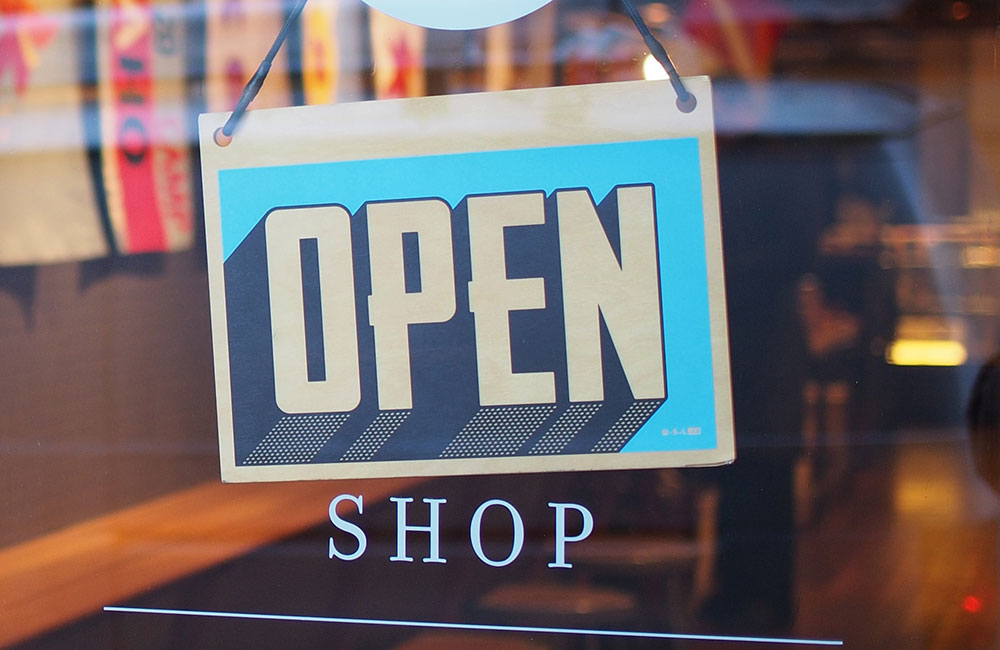
Brave, customer-focused retailers who work closely with others in their community are most likely to survive in post-lockdown UK; this is the belief of Andrew Goodacre, head of the British Independent Retail Association (Bira).
Goodacre has shared his thoughts on a possible exit strategy for the retail industry. He is calling for restrictions to be first lifted for smaller shops and businesses. His article comes as pressure mounts on the government to make clear both when and how lockdown restrictions will start to be lifted.
The article also includes Goodacre’s 10-point survival plan for independent retailers in the post-Covid-19 world. And, while he says government support will be much needed, the onus also needs to be on the retailer to adapt to a changing landscape. “It’s not all about waiting for government intervention, as retailers themselves must take control of their own destiny,” he says.
Goodacre’s survival strategy urges retailers to consider both multi-channel sales and sustainable retail. Also, customer-focused experiences – and to be brave.
“There will be many new ideas introduced into the world of retailing,” he continues. “Some will work and some won’t – be brave.”
However, he warns: “Unfortunately, there are some business that won’t survive. Retail was changing in any case. Covid-19 has bought together communities and, as I have said, I believe the independent retailer is the heart of every good high street.
“With a bit of luck and a lot of the creative, entrepreneurial flair that has always been part of successful retailing, I am confident that the ‘indie’ will continue to serve its consumer.”
Goodacre’s 10-point survival plan
1. Exit plan
A clear exit strategy is needed with the opening of smaller shops taking priority. We should also learn from steps being taken in Europe as countries there exit lockdown.
2. Financial stimulus
The government needs to implement a financial stimulus to entice people back to the shops and generate consumer confidence. VAT has been used in the past as such a stimulus and should be done again over the summer.
3. Furlough scheme extension
There should be an extension of the scheme but at lower levels to avoid a ‘hard exit’ from lockdown. With footfall reduced, sales in-shop will decrease, and there will be temptation for retailers to make staff redundant or not open at all, judging it uneconomic to do so.
4. Cooperation with other key services
Reopening the high streets needs to be in conjunction with schools and also increased levels of public transport.
5. Working together
Town centre managers, Business Improvement Districts (BIDS), local authorities and retailers must all work together to accelerate plans for changing towns. Retail was already under pressure but there was not enough cohesive thinking behind the improvement plans. Clarity of thought together with more ambitious schemes are essential.
6. Multi-channel sales
Retailers moving towards omnichannel retailing. Some have been doing it well. However, many more now need to embrace technology and, ultimately, opportunity. We have seen some members do this well, using social media and internet marketplaces to promote their business. This will require investment in good technology, including effective point of sale (POS).
7. Customer first
Adopting a more customer-focused approach. Retailers have been offering deliveries, click-and-collect, and improved community engagement. This crisis has enforced a stronger sense of community, presenting an opportunity for the independent retailer often at the heart of it.
8. Sustainable retail
This was a growing trend before the crisis and it will be even stronger post-crisis. If anything, there will be a greater focus on environmental issues as we start to benefit from less pollution (due to less industrial activity, less traffic, etc), although single-use plastic has made a bit of a comeback! Retailers who introduce sustainable retailing into their business will differentiate themselves and appeal to a wider generation of consumers.
9. Focus on customer experience
As time goes by footfall will increase and interest in visiting the high street will return. Retailers (and their employees) must appreciate the need for giving an ‘experience’ to the consumer – engagement, knowledge, different products.
10. Be brave
Work together and take advantage of available support. There will be many new ideas introduced into the world of retailing – some will work and some won’t. For example, could a clothes shop do a fashion show via the House Party app? Be brave!
For further information on Bira, please click here. Bira’s Coronavirus Hub also offers additional advice and support for independent businesses.










